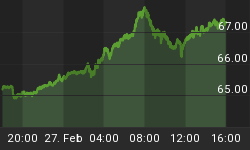Nearly 80% of Amazon shoppers say that product reviews play a big role in their consumer decision-making, but fake reviews render that a bit of a swindle as reports emerge that make reading reviews seem pointless.
While individual websites usually manage to gather only a handful of reviews, and visitors to those sites understand that the company has control over which reviews to publish and which to hide, major online retailers can have thousands of these reviews.
And like everything else, bad actors have found a workaround to what until recently has been an incredibly useful shopping experience.
Fake reviews of products on Amazon, the number one online retailer, are nothing new, of course, and have typically peaked during holiday shopping seasons, but since they pandemic they have spiked in scope and scale.
With millions of virus-avoiding shoppers turning to e-commerce, the numbers of fake reviews have skyrocketed in tandem.
According to the monitoring service Fakespot Inc, some 42% of 720 million Amazon reviews assessed last year were unreliable. In the same assessment, almost 36% of Walmart.com reviews were fake.
Despite both of their efforts to purge them, fake reviews continue to plague online marketplaces and all indications are that it will only get worse.
Amazon recently said it is checking reviews before they go public, processing 10 million submissions every week. But the problem is, it’s too easy for vendors to buy positive reviews, or even to buy negative reviews of a competing product.
Last September, Amazon removed 20,000 product reviews after finding the fake reviews on them.
Recent studies have found that many of these fake reviews originate from Facebook groups.
Last July, a UCLA/USC study found more than 20 fake review-related Facebook groups, with an average of 16,000 members. Sellers, according to the study, were mostly companies based in China and were offering a refund for a purchased product (get a refund, keep the product) or payment of about $6 on average for a positive review.
In the UK, consumer group Which? found 10 websites selling fake reviews from $7 to $18 each, or cheaper in a bulk package costing up to $10,000 for 1,000 five-star reviews.
However, the fake reviews business goes far beyond paying someone $7 or leaving a bad review out of spite or competition.
Last September, the US authorities indicted six people with conspiracy and wire fraud in relation to bribing Amazon employees to reinstate suspended accounts and manipulate product reviews.
The six have been charged with bribing Amazon staff and contractors to the tune of over $100,000 for an estimated gain of $100 million, which will simply be chalked up to the cost of doing business.
Various automated services, such as Fakespot and ReviewMeta, have emerged to help shoppers assess whether the reviews they’re reading are real.
And with unemployment soaring during the pandemic, the fake review business has become somewhat of a work-at-home super star … especially in Italy, where unemployment has reached 10%.
Reuters reports that tens of thousands of Italians are joining Amazon channels on social media and messaging apps that are offering five-star reviews for products in return for financial rewards. According to the report, “reviewers” get up to $3 per review and end up earning around $450 per month.
It’s getting increasingly difficult to spot the fakes because these are real people who have ordered real products as “verified purchases”. They’re providing detailed reviews and spinning them positive in cases where the products are really inadequate.
So, next time you shop online, consider yourself shopping blind.
















